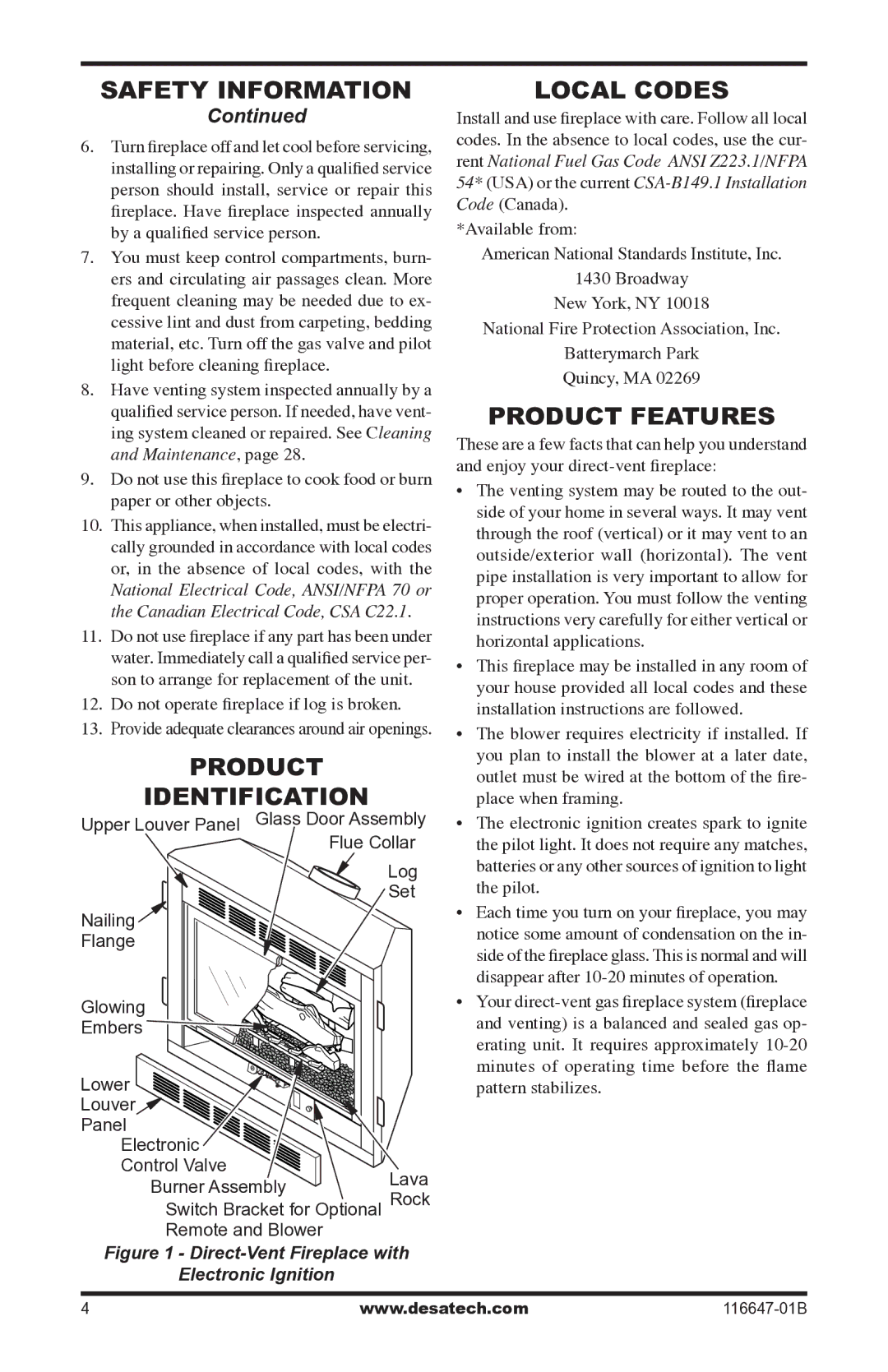
SAFETY INFORMATION
Continued
6.Turn fireplace off and let cool before servicing, installing or repairing. Only a qualified service person should install, service or repair this fireplace. Have fireplace inspected annually by a qualified service person.
7.You must keep control compartments, burn- ers and circulating air passages clean. More frequent cleaning may be needed due to ex- cessive lint and dust from carpeting, bedding material, etc. Turn off the gas valve and pilot light before cleaning fireplace.
8.Have venting system inspected annually by a qualified service person. If needed, have vent- ing system cleaned or repaired. See Cleaning and Maintenance, page 28.
9.Do not use this fireplace to cook food or burn paper or other objects.
10.This appliance, when installed, must be electri- cally grounded in accordance with local codes or, in the absence of local codes, with the
National Electrical Code, ANSI/NFPA 70 or the Canadian Electrical Code, CSA C22.1.
11.Do not use fireplace if any part has been under water. Immediately call a qualified service per- son to arrange for replacement of the unit.
12.Do not operate fireplace if log is broken.
13.Provide adequate clearances around air openings.
Product
Identification
Upper Louver Panel Glass Door Assembly
Flue Collar
Log
Set
Nailing ![]()
Flange
Glowing ![]()
![]()
![]()
![]()
![]() Embers
Embers ![]()
![]()
![]()
![]()
![]()
![]()
![]()
Lower |
| |
Louver |
| |
Panel |
| |
Electronic |
| |
Control Valve | Lava | |
Burner Assembly | ||
Rock | ||
Switch Bracket for Optional | ||
Remote and Blower |
|
Figure 1 - Direct-Vent Fireplace with
Electronic Ignition
Local Codes
Install and use fireplace with care. Follow all local codes. In the absence to local codes, use the cur- rent National Fuel Gas Code ANSI Z223.1/NFPA 54* (USA) or the current
*Available from:
American National Standards Institute, Inc.
1430 Broadway
New York, NY 10018
National Fire Protection Association, Inc.
Batterymarch Park
Quincy, MA 02269
Product Features
These are a few facts that can help you understand and enjoy your
•The venting system may be routed to the out- side of your home in several ways. It may vent through the roof (vertical) or it may vent to an outside/exterior wall (horizontal). The vent pipe installation is very important to allow for proper operation. You must follow the venting instructions very carefully for either vertical or horizontal applications.
•This fireplace may be installed in any room of your house provided all local codes and these installation instructions are followed.
•The blower requires electricity if installed. If you plan to install the blower at a later date, outlet must be wired at the bottom of the fire- place when framing.
•The electronic ignition creates spark to ignite the pilot light. It does not require any matches, batteries or any other sources of ignition to light the pilot.
•Each time you turn on your fireplace, you may notice some amount of condensation on the in- side of the fireplace glass. This is normal and will disappear after
•Your
www.desatech.com116647-01B
